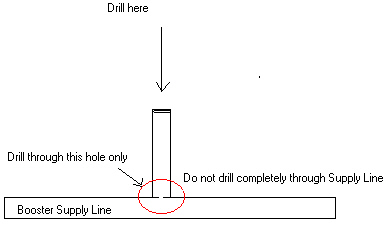
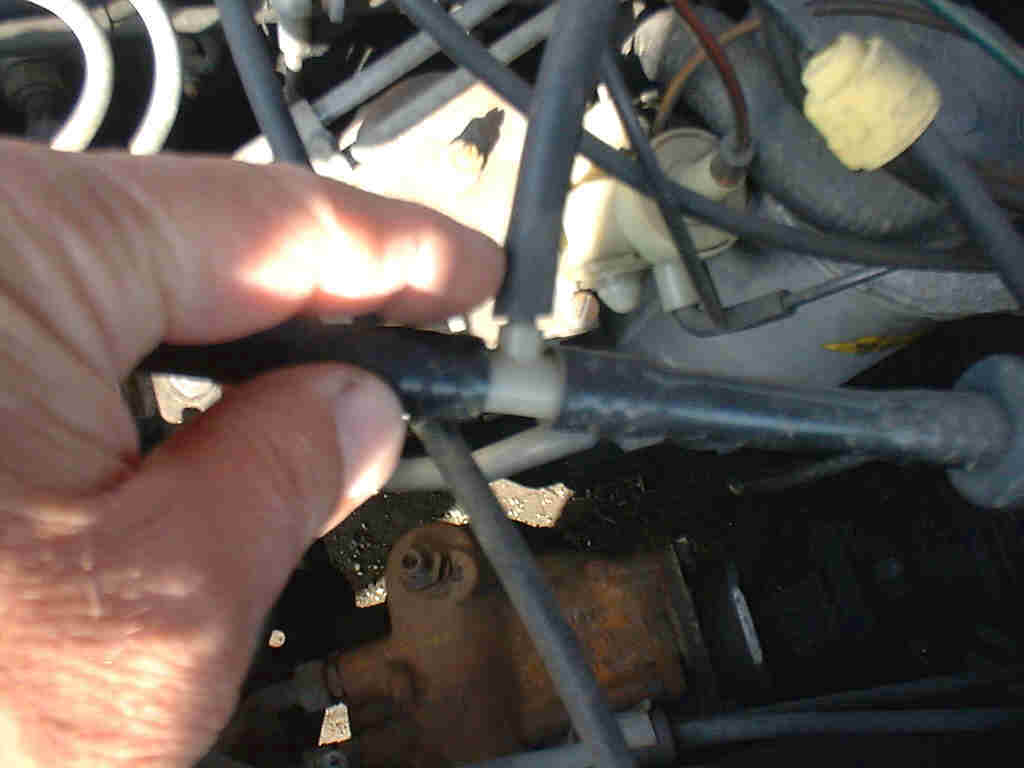
SUN VALLEY MERCEDES TRANSMISSIONS
11239 iLex Ave. Unit B Pacoima, Ca. 91331 818 7822300Diesel Vacuum System diagnosis and repair
After our transmission has been installed, it is critical that the vacuum system is checked and repaired to insure proper operation of our transmission. The vacuum system must function properly, before any adjustments to the transmission are made.
The Mercedes Benz diesel uses a bleed off system to regulate the amount of vacuum supplied to the transmission's vacuum modulator. This variable vacuum system regulates the 722.118 series transmission shift. If the vacuum system is incorrect, the transmission could shift through the gears immediately or have late shifts.
The variable vacuum system for the 722.3-- and 722.416 series transmission regulates how hard or soft the transmission shifts.
The supply is taken from the Power Brake Booster vacuum line ("T" in line). With the engine running, and the transmission full of oil, unplug the supply and install a vacuum gauge. The gauge's needle should jump up to 15" - 20" of vacuum. If the needle rises slowly, your supply is restricted. Remove the gauge and drill the orifice with a 1/16" drill bit. Make sure you do not drill all the way through the supply tube.
Vacuum "T" diagram and photo:
![]()


Now that the supply is good, you need to re-connect the vacuum line to the Booster Supply Line. Now disconnect the vacuum modulator line from the White Bleed Valve. Plug in the Vacuum gauge in the modulator line's place and take a vacuum reading. It should read 10" - 20" of vacuum. If not, check the white vacuum switches located on the top of the valve cover, blocking each one off to test for a vacuum leak. Check all the vacuum hose connections for leaks and check the EGR valve for leaks, as well. If any are leaking, replace them. Make sure that the linkage arm from the White Bleed Valve to the Injection pump is hooked in properly. If you are getting a good vacuum supply to the White Bleed Valve, but no vacuum to the modulator line, replace the bleed valve. If you are getting good supply to the bleed valve and you are getting 10"-20" of vacuum to the modulator, open and close the throttle slowly, with the engine running, and watch the vacuum gauge. It should drop according to throttle position. I.E.: Half throttle, half vacuum. Full throttle, no vacuum. If you don't get the proper regulation, you must replace the White Bleed Valve. When you finally get good vacuum regulation to the modulator, you are done. Follow the adjustment page for proper modulator adjustments.
White Bleed Valve White Vacuum Switch
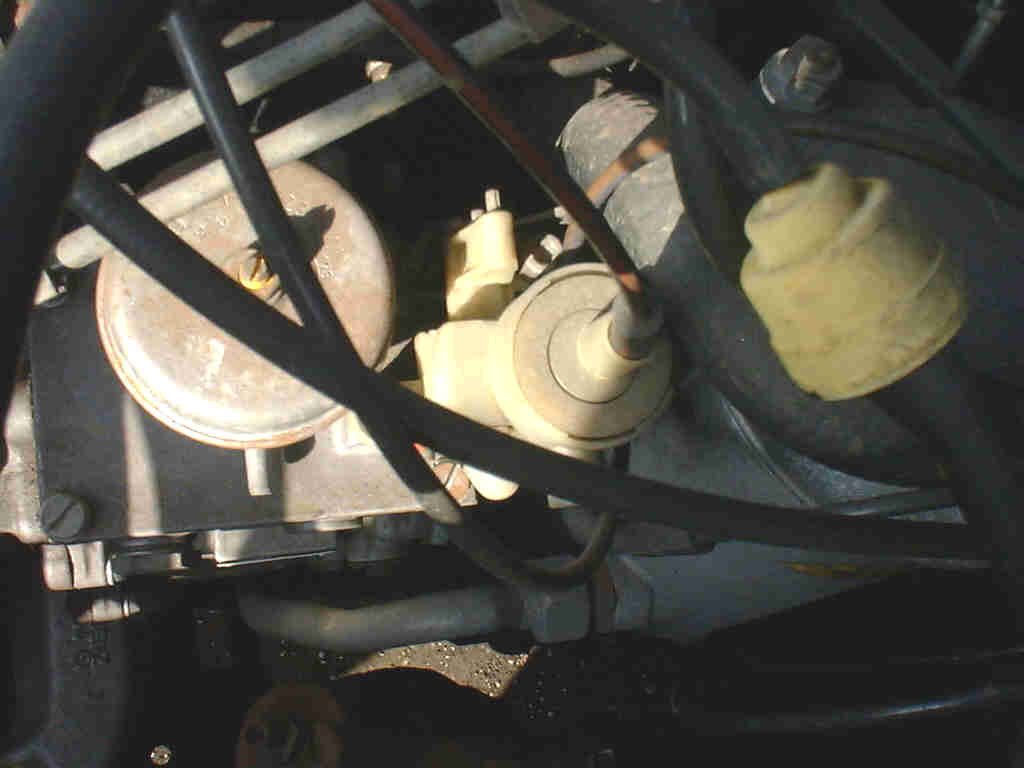
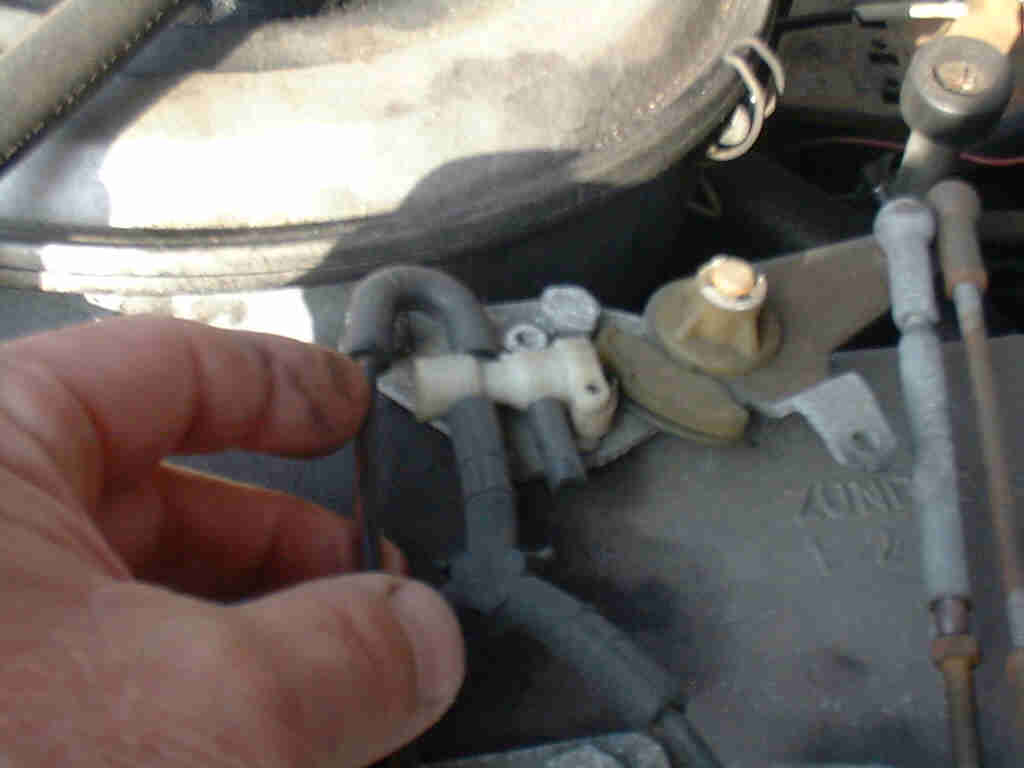
Metal Vacuum Valve:
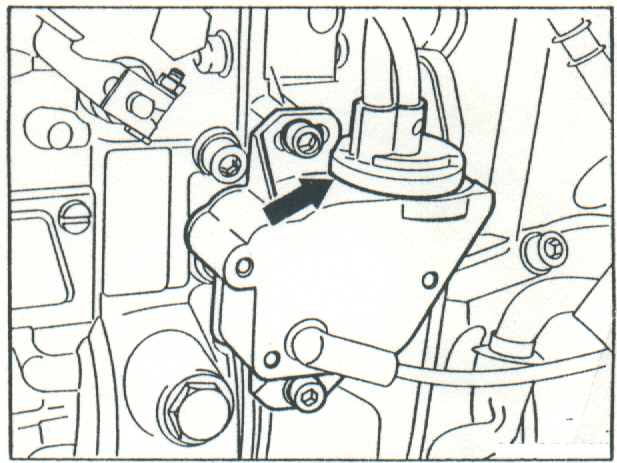
The following pictures are of common vacuum diagrams for Diesels
722.118 Vacuum diagram (240D):
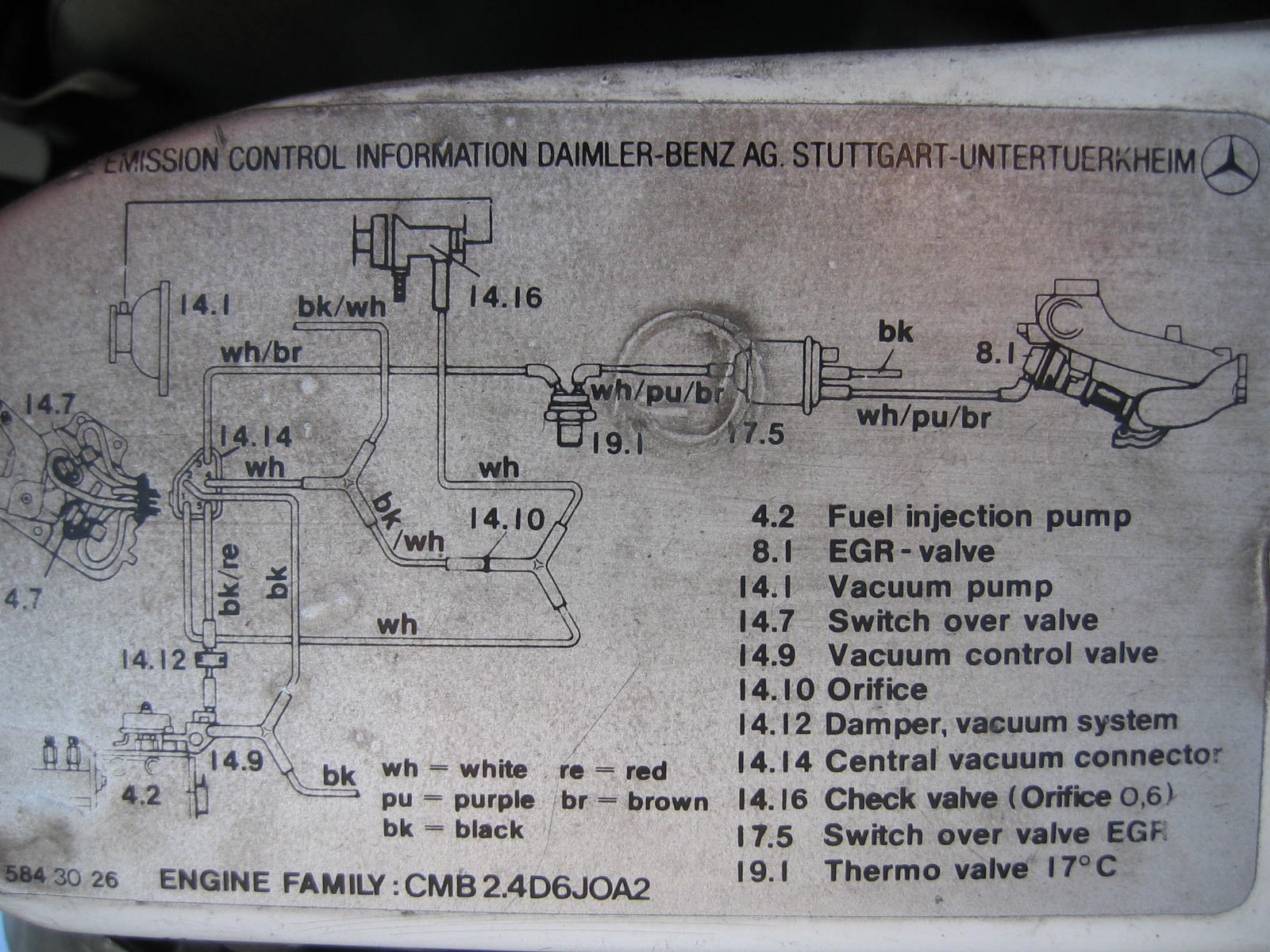
722.315 Vacuum diagram:
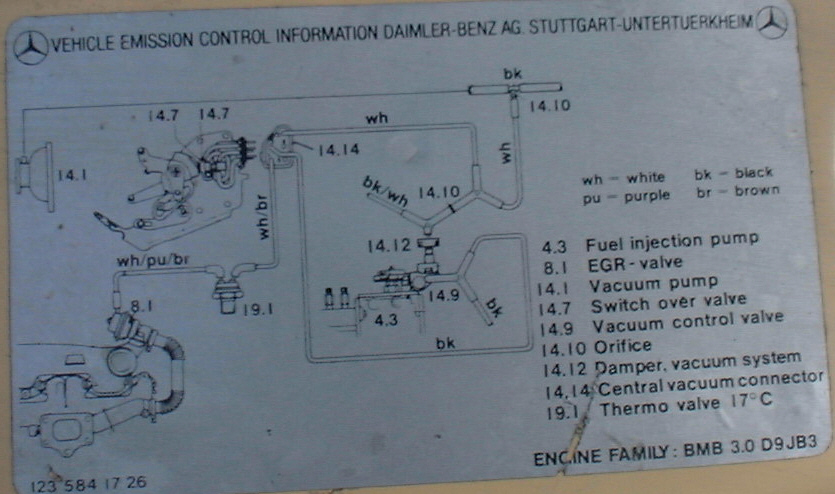
Another version of a 722.315:
.jpg)
722.416 vacuum diagram:
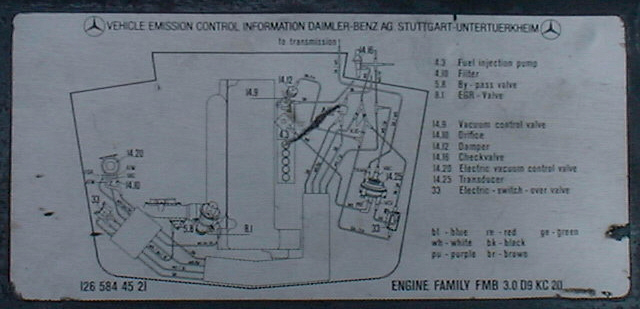
722.120 (1980 300SD):
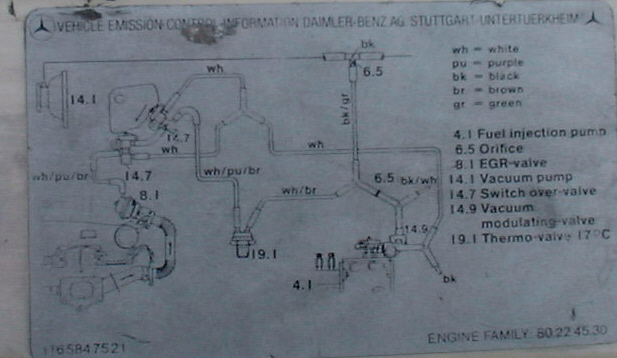
1986 190D:
124 and 126 Body with a 603 6 cylinder diesel:
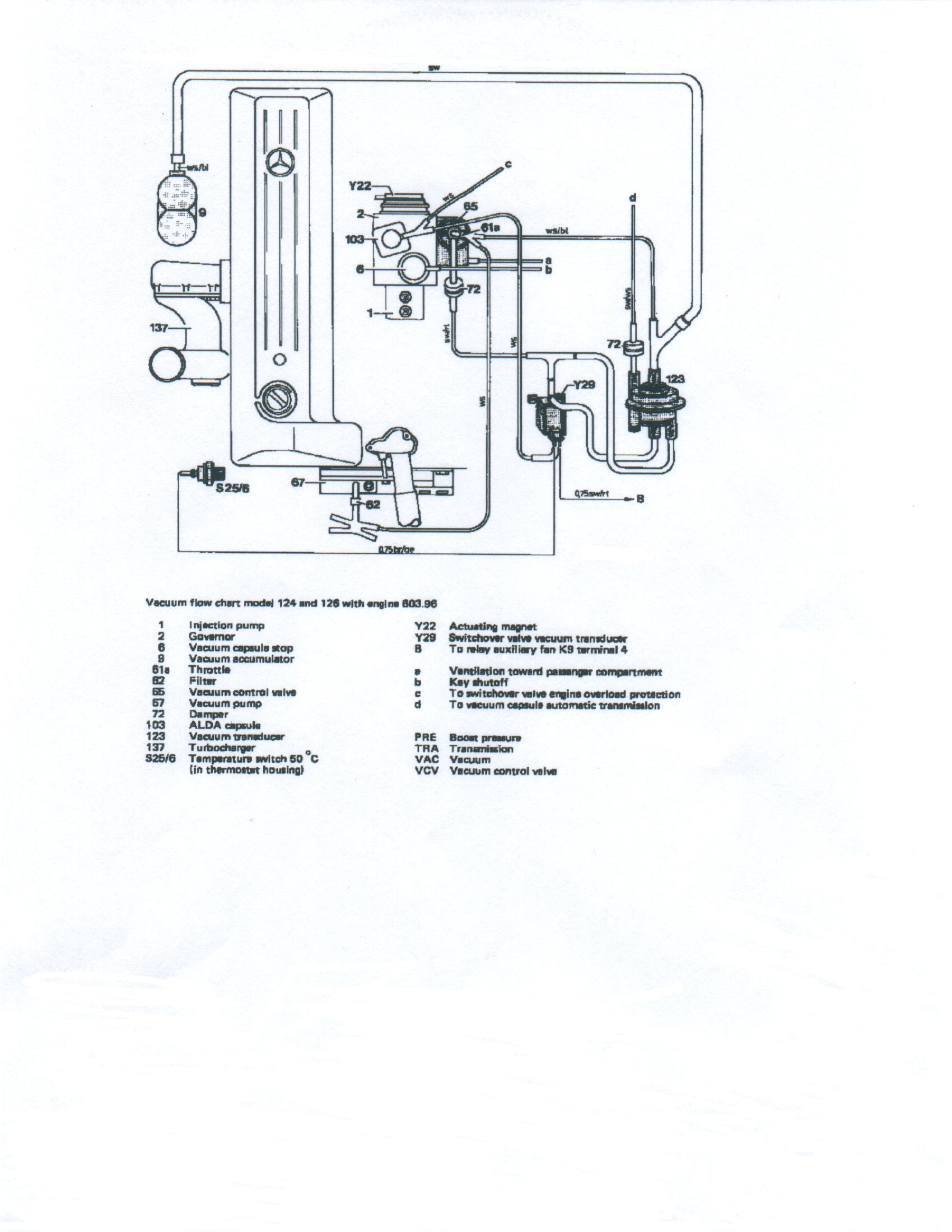
Back to:
722.3 and 722.416 transmission adjustments
722.118 Transmission Adjustments
If you have any questions, please call us at (818) 782 2300 or E mail: sunvalleymercedes@gmail.com
Feel free to explore our web site by using the buttons below.
SUN VALLEY MERCEDES TRANSMISSIONS
11239 iLex Ave. Unit B Pacoima, Ca. 91331 818 7822300
E-mail: sunvalleymercedes@gmail.com
All Contents and Web page formats are subject to Copyright © 2022 MMS Industries, Inc.
<script type="text/javascript">
var _gaq = _gaq || [];
_gaq.push(['_setAccount', 'UA-36722279-1']);
_gaq.push(['_setDomainName', 'mercedesdismantlers.com']);
_gaq.push(['_setAllowLinker', true]);
_gaq.push(['_trackPageview']);
(function() {
var ga = document.createElement('script'); ga.type = 'text/javascript'; ga.async = true;
ga.src = ('https:' == document.location.protocol ? 'https://ssl' : 'http://www') + '.google-analytics.com/ga.js';
var s = document.getElementsByTagName('script')[0]; s.parentNode.insertBefore(ga, s);
})();